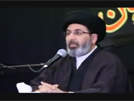Polygamy
- Details
- Hits: 2709
Polygamy
Polygamy or plurality of wives is one of the controversial questions connected with the family system of Islam. In this connection a few points are worth consideration:
(a) Natural and social pre‑requisites of polygamy
It is evident that the question of polygamy arises when:
• The number of women eligible for marriage is more than the number of marriageable men.
• There are women who are willingly prepared to marry a man already having a wife and consider such a marriage to be in their interest.
Hence the question of polygamy does not arise firstly if the number of marriageable women is less than that of eligible men and secondly if the women are unwilling to marry a man having another wife. Now let us see in the case of the existence of the two conditions mentioned above, as to what can be the most reasonable and practical way of preserving the family system and safeguarding the interests of such women.
Here another question arises and that in itself is worthy of taking into consideration. It is the question of the disparity between men and women in the age of fecundity which has two aspects;
(1) Marriage age or puberty mostly commences earlier in girls than in boys.
(2) The power of procreation of women cease at a certain age, after which they become pregnant in very rare cases, whereas there is no such fixed age for men.
(b) Polygamy before Islam
It should be remembered that the custom of polygamy existed before the advent of Islam among the Jews, the Arabs, the Persians and many other peoples of the world. All that Islam has done is that it has restricted it.
During the Middle Ages it was propagated in Europe that the practice of polygamy was first introduced by Islam. Will Durant has denied this charge. He in his book, History of Civilization (vol. I p. 61), says:
The clerics in the Middle Ages thought that polygamy was an innovation of the Prophet of Islam. But that is not the case. As we have seen, it has been practiced in most of the primitive societies.
Without paying attention to its natural or social causes the Europeans over many centuries tried to describe polygamy as a big weakness of the Islamic teachings. At last some scholars exploded this myth and showed how topsy turvy is the picture painted of this custom and how unjust is its attribution to Islam.
The French historian Gustave Le Bon in his book, says:
In Europe no Eastern custom has been so much criticized as polygamy and Europe has also not gone so wrong about any usage as about it. The European writers have considered polygamy to be the foundation of Islam and have described it as the root cause of the spread of this religion as well as of the decline of the Eastern people. If the readers of this book cast off their European prejudice for a while, they will admit that polygamy is a good custom as far as the social system of the East is concerned. It has enabled the people by whom it is practiced to strengthen and invigorate their family relations. Thanks to this custom the woman enjoys more respect in the East than in the West. Before adducing our arguments to prove what we say, we have to mention that polygamy has not been first introduced by Islam, for this custom was prevalent among the pre‑Islamic people of the East, including the Jews, the Persians, the Arabs etc. Even in the Western countries, though the climate of none of them is conducive to such a custom, monogamy is a thing which is found only in the legal books. I do not think that it can be denied that in actual practice monogamy does not exist in our society. I wonder how and why the legalized polygamy of the East is inferior to the clandestine polygamy of the West. (Tamaddun‑i Islam wa Arab).
Polygamy and its conditions in Islam
Islam allows polygamy on three basic conditions:
(1) Preservation of the purity and cordiality of family life so that it may not become the cause of disruption of the family affairs.
(2) Number of wives not to exceed four.
(3) Equitable treatment of all the wives.
Now let us see what the Qur'an says in this respect: `Marry women of your liking, two, three or four, and if you fear that you shall not deal justly with so many then (marry) only one". (Surah al‑Nisa, 4:3).
As we have mentioned earlier, prior to Islam there existed no limit as to the number of ‑wives. It was Islam which restricted it and prevented the formation of harems found in the lives of the wealthy persons, rulers and sultans.
Furthermore, Islam has emphasized that taking advantage of this permission is conditional on the observance of complete equitability between the wives. This precondition requires the presence of a special spirit in the man. If he lacks it, he is .not allowed to take more than one wife.
In the end, it is to be pointed out that the basic objective of conjugal life in Islam being the contentedness of the family members and mutual love and benevolence of the husband and wife, the best and the most satisfactory form of marriage is naturally monogamy. Hence the men should avail themselves of the permission of polygamy only in very exceptional circumstances and that too on the condition that they find themselves competent enough to satisfy all the material and moral needs of their wives and treat them equitably.











